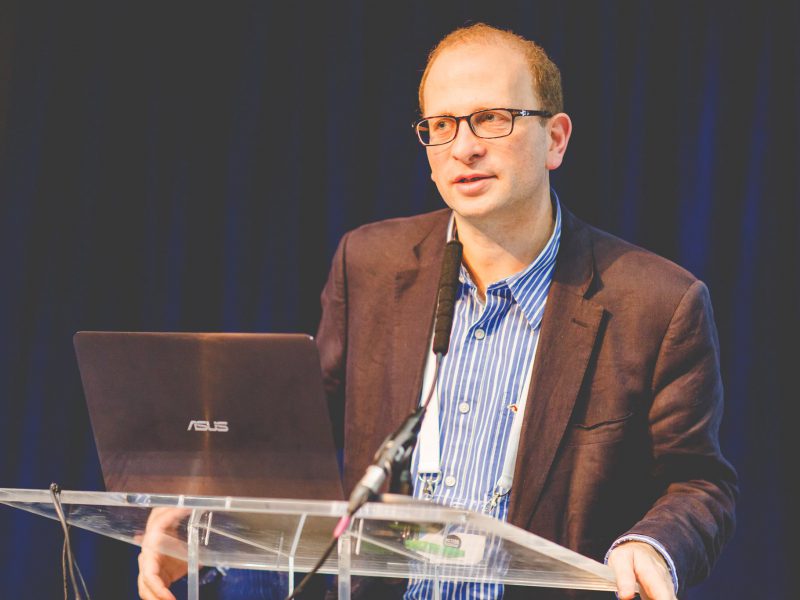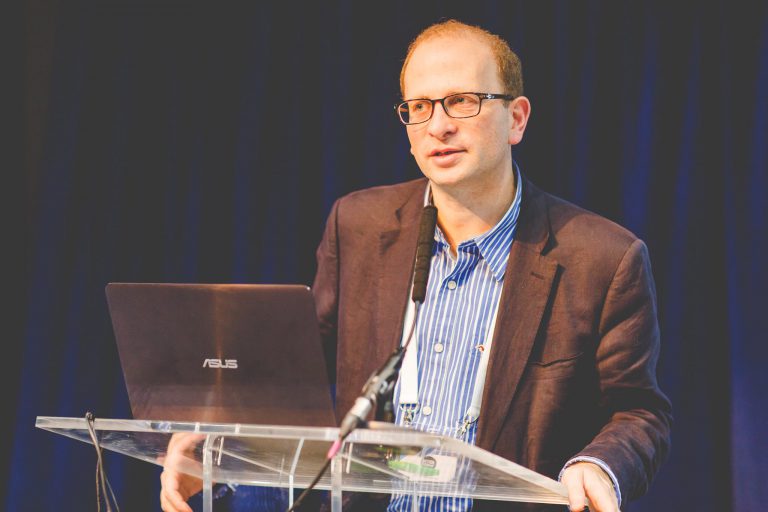“I was last in Washington DC two years ago and let’s just say there have been a few changes since my last visit. The searing late September heat (32c). Toys R Us going bust. The keys to the White House being handed over to Donald Trump.
I’m not sure many people here would have called out Mr Trump to be the 45th president of the United States but I took the opportunity to canvas the views of some locals yesterday. My not very scientific poll of two people in a local café revealed 1) an acknowledgement that the guy must be pretty smart to get himself from nowhere into the White House in the space of two years and 2) some serious trepidation about the direction in the country is heading.
Fortunately, I’m not here to observe the political scene. I’ve made the trip with my son Thomas so that we can testify at today’s FDA advisory committee meeting. And we’ll be highlighting the fact that powerful written testimonies from 27 families in the UK have been collected by Action Duchenne.
The Open Public Hearing (OPH) session of the meeting of the ‘Peripheral and Central Nervous System Drugs Advisory Committee for new drug application 200896, ataluren for oral suspension’ – to give its full title – will be another day where the Duchenne community must fight hard to demonstrate that this a drug which works. To look beyond the data alone and explain how this is a treatment which has bought precious time and hope for families.
When I was here two years ago, I spent my first night fighting jetlag and reading through NICE’s evidence consultation documents for Ataluren which had just been issued. It didn’t take too long to pick some holes in the holes which had been picked by NICE. Thanks to the efforts of Action Duchenne and many others in the Duchenne community, the regulators were eventually able to see that Ataluren has the potential to benefit those living with Duchenne and looked beyond a simple 6 minutes walk test conducted over 48 weeks.
The FDA published its briefing documents yesterday and I was struck by both the similarities with the original NICE analysis and the almost obsessive adherence to an old fashioned way of measuring efficacy. Jaundiced is the word which best described the tone adopted in the FDA reports. It must be quite easy for experts to deconstruct the post-hoc analyses which are common place when drug companies drill down into the extensive data generated by a clinical trial. It is much more difficult to prove that a drug doesn’t work.
That is why the testimonies of families are so important. The real-time evidence, observed over many years and considered against natural history data, cannot be disregarded. The fact is that trial design for Duchenne drugs is still in its infancy. However, the dramatic number of trials – unthinkable 15 years ago – means that researchers are competing to enrol an already small pool of boys and young men living with Duchenne. The challenges associated with understanding and treating Duchenne are immense. The dystrophin gene is the largest known gene in the human body and there are multiple variations between how Duchenne boys and men are affected, even between siblings. The meeting of a primary endpoint in a randomised, double-blinded and placebo controlled trial can no longer be used as the principal basis for making regulatory decisions.
There are families gathered here in Washington whose sons have been receiving Ataluren for five, ten or more years. Today, they will point out the wider benefits of the drug which go beyond a 6 minute walk test such as improved cardiac function or the ability to undertake many more tasks independently.
To put it bluntly, today’s meeting is also an opportunity for regulators to demonstrate efficacy. There is no cure for Duchenne yet but Ataluren works. Thomas and I will be both passionate and objective in making the case for American families to have access to the drug, as they do in the UK and so many other countries.”
Action Duchenne trustee Mark Silverman and his son Thomas have been nominated by the FDA to speak to the Advisory Committee on behalf of the UK Duchenne community tomorrow.
The American Food and Drugs Administration (FDA) will consider whether to grant approval for Translarna in the US. In support of our friends at PPMD, families in the UK have submitted powerful evidence on Translarna to the FDA.
27 UK families submitted searing personal evidence to back the approval of Translarna. They spoke of the difference Translarna makes for those taking the drug, and the hope it has given to the whole Duchenne community in the UK.
For more information contact katherine@actionduchenne.org.



 Synpromics announces Gene Therapy research partnership with Solid Biosciences
Synpromics announces Gene Therapy research partnership with Solid Biosciences
